What is Industrial Sand Drying Equipment
Industrial sand drying equipment is an essential component in the manufacturing processes involving the production of items such as glass, ceramics, cement, and even pharmaceuticals. The primary function of this equipment is to remove moisture from sand, a critical step in ensuring the quality and integrity of the end product. Industries that rely on this drying equipment include foundries, glass makers, construction material manufacturers, and more.
The principle behind industrial sand drying is relatively straightforward. The process involves the application of heat to the sand in a manner that accelerates the evaporation of moisture. This can be achieved through various methods such as direct drying using hot air or indirect drying where the heat source is applied to a vessel containing the sand. The choice of drying method depends on the specific requirements of the material being dried and the technology available.
Industrial sand drying equipment is designed with the end-user in mind, providing the versatility and efficiency required for large-scale operations. These dryers are often built to withstand the rigorous environments of industrial settings and can be integrated into production lines or used as standalone units. With advancements in technology, modern drying equipment has also become more energy-efficient and offers greater control over the drying process, enhancing the quality of the dried product while reducing operational costs.
Types of Industrial Sand Drying Equipment
Industrial sand drying equipment comes in various forms to meet the needs of different applications. Here are some common types:
-
Rotary Dryers: These are the most widely used type of sand dryers. They consist of a large rotating drum that is inclined at an angle to the horizontal, thus allowing gravity to help in the drying process. Rotary dryers can be gas or electrically heated and are suitable for a range of materials including fine sand, coarser aggregates, and mineral products.
-
Fluidized Bed Dryers: Utilizing a bed of hot sand through which air is blown, fluidized bed dryers provide excellent heat transfer and high thermal efficiency. They are often used for foundry sands, silica sands, and mineral products due to their ability to achieve very low moisture levels.
-
Flash Dryers: These are a newer type of sand drier where rapid drying is achieved through direct contact with hot air. Flash dryers work well for pre-drying wet materials before entering a more traditional rotary dryer or for heat-sensitive materials.
-
Tray Dryers: Although less common for sands, tray dryers can be used specifically for this purpose. They consist of a series of trays stacked vertically in a frame, with gaps between each tray. These are often used in laboratory settings or small-scale production runs.
Each type has its own set of use cases depending on the material being dried and the end requirements of the process. For example, rotary dryers are prevalent in large-scale foundries where they efficiently dry vast quantities of sand used in making molds.
How to choose Industrial Sand Drying Equipment
Selecting the right industrial sand drying equipment requires careful consideration of several factors, including the type of material being dried, the required capacity, the drying medium available, and the specific space constraints of the facility. For instance:
-
When dealing with heat-sensitive materials that require gentle drying to maintain their integrity, fluidized bed dryers may be the preferred option due to their ability to dry materials without causing excessive thermal stress.
-
For materials that can withstand higher temperatures and require thorough drying, rotary dryers would be more appropriate as they operate at higher temperatures than other types of dryers.
-
When space is at a premium and there is a need for quick turnover in the drying process, conveyor dryers would be beneficial as they continuously move materials along the drying path.
It's important for businesses to also consider the after-sales support provided by suppliers—whether they offer online support or field maintenance—and compatibility with local service locations. Machinery test reports can also be a valuable resource when evaluating different options.
About Industrial Sand Drying Equipment on Alibaba.com
Alibaba.com stands as an expansive marketplace connecting buyers with suppliers from around the globe. For businesses seeking robust and reliable industrial sand drying equipment, Alibaba.com offers an extensive array of options tailored to meet diverse operational needs. Whether your business operates on a small scale or spans across multiple countries, you'll find a suitable solution within Alibaba.com's comprehensive network of suppliers.
The platform's user-friendly interface simplifies the search process with filters allowing you to narrow down options based on core components like motor type and applicable industries. With an emphasis on facilitating seamless transactions, Alibaba.com offers services like Trade Assurance to protect your payments until delivery is completed.
Choosing Alibaba.com means leveraging not just variety but also expertise. The site's suppliers are adept at customizing solutions that can integrate with existing systems or meet specialized requirements. Furthermore, Alibaba.com's commitment to supporting small and medium-sized businesses through tailored trade solutions reflects its dedication to fostering growth within the industrial sector.
Common FAQs for Industrial Sand Drying Equipment
What types of industrial sand drying equipment are available?
There are several types of industrial sand drying equipment, including rotary dryers, fluid bed dryers, spray dryers, and vacuum dryers. Each type is used for different applications depending on the material and the required drying quality.
How do I determine the right type of industrial sand drying equipment for my business?
The choice of industrial sand drying equipment depends on the material to be dried, the required drying capacity, energy efficiency, and the specific drying conditions of your business. It is important to assess these factors to ensure the equipment aligns with your operational needs.
What should I consider regarding the material of the industrial sand drying equipment?
When selecting a material, consider the potential for corrosion or contamination. Stainless steel is often preferred for food-grade applications, while carbon steel may be suitable for more durable equipment.
Can industrial sand drying equipment be used for all types of sand?
Not all industrial sand drying equipment is suitable for all types of sand. For example, fluid bed dryers may not be appropriate for certain types of sand. It is essential to match the type of equipment with the specific needs of your material.
How does the heating method affect the drying process in industrial sand drying equipment?
The heating method, such as electric or gas, can influence the drying process by affecting the speed and uniformity of drying. The choice should be based on the production scale and efficiency goals of your business.
What are the advantages of using a vacuum dryer over other types of industrial sand drying equipment?
A vacuum dryer can reduce drying time significantly by operating at lower temperatures, which is beneficial for preserving product quality. It also allows for easier removal of moisture from the product.
How does the capacity of industrial sand drying equipment impact its performance?
The capacity of industrial sand drying equipment determines the volume of material that can be dried at once. Higher capacity equipment can lead to increased productivity and cost efficiency in large-scale operations.
Is it possible to find energy-efficient industrial sand drying equipment?
Yes, energy-efficient options are available in the market. Look for features such as automatic temperature controls, programmable timers, and energy-saving heating methods when making your selection.
What after-sales services are typically provided with the purchase of industrial sand drying equipment?
After-sales services can include online support, video technical support, and engineers available to service machinery overseas. However, the availability and extent of these services vary by supplier.
Can I customize industrial sand drying equipment based on my business's specific requirements?
Many suppliers offer customization options for industrial sand drying equipment. This can include adjusting drying temperatures, cycle times, or adding specific features to meet your business's unique needs.








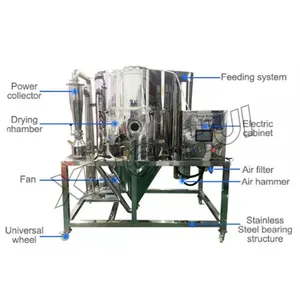

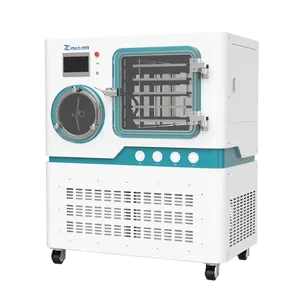




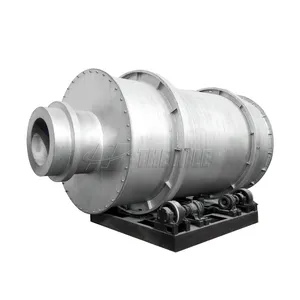
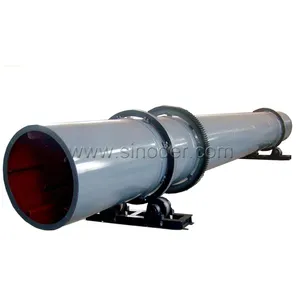


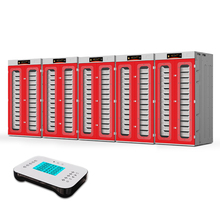
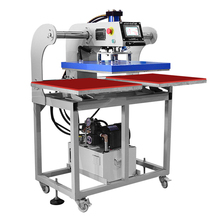
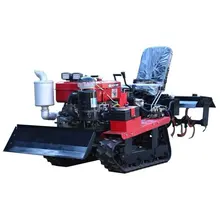

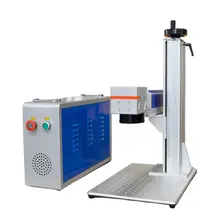

























 浙公网安备 33010002000092号
浙公网安备 33010002000092号 浙B2-20120091-4
浙B2-20120091-4